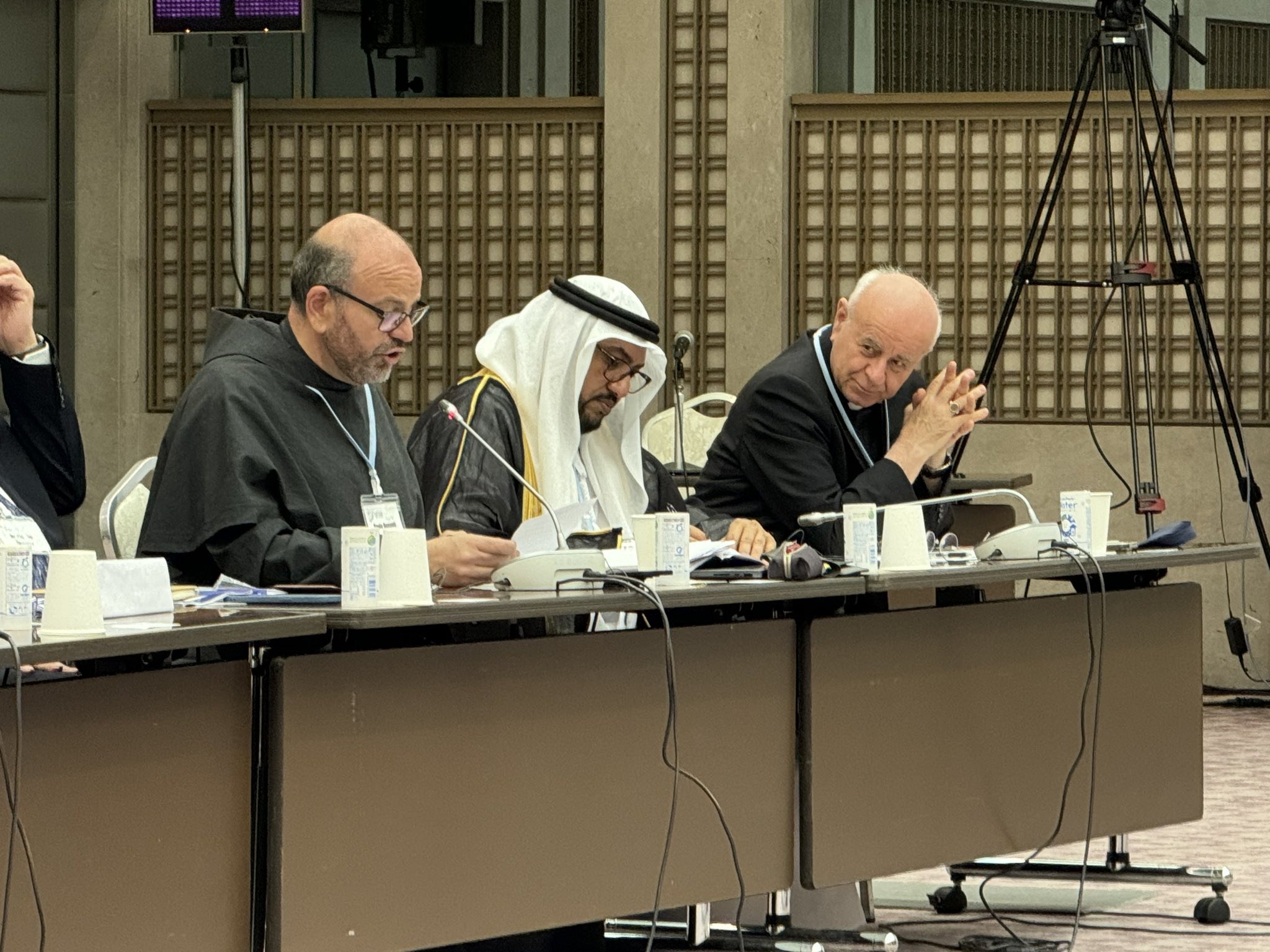Religions and Big Tech in Hiroshima for an ethics of artificial intelligence
The meeting taking place in the city scarred by the wound of the atomic bomb also involves Eastern religious traditions in the Rome Call for AI Ethics, promoted by the Pontifical Academy for Life. A specific addendum on the challenges posed by generative artificial intelligence added to the 2020 principles on the safeguarding of peace and the dignity of every person.
Hiroshima (AsiaNews) - "In Hiroshima, a place of very high symbolic value, we strongly invoke peace, and we ask that technology be an engine of peace and reconciliation between peoples. We are here to say loudly that being together and acting together is the only possible solution'.
These were the opening words of Archbishop Vincenzo Paglia, President of the Pontifical Academy for Life, today on the first of the two days of AI Ethics for Peace, an event through to promote a coomon commitment to an ethics of artificial intelligence, brought forward since 2020 by the Holy See together with exponents of the Jewish and Muslim worlds, the FAO and some large IT companies and now extended to involve representatives of the religions of the East.
The meeting will have its central moment tomorrow with the signing ceremony by the representatives of the regions of the Rome Call for Ai Ethics, the document indicating a series of principles for algorethics, i.e. an ethics that keeps the person and justice at the centre in relations between peoples in the development and application of artificial intelligence.
The signing will take place significantly at the Memorial Park commemorating the victims of the American atomic bombing in 1945, and after hearing the words of a survivor of that tragedy, the result of an inhuman form of development of technology.
"Our mission as Religions for Peace Japan," said its president, Buddhist monk Yoshiharu Tomatsu, in the opening session, "is to provide support and guidance for efforts to improve equality and mutual respect for individuals and institutions throughout society, based on our common spiritual goals. Recent advances in artificial intelligence have led to the emergence of powerful new tools that have the potential to help such efforts or, if used for other purposes, greatly undermine them. Recognising these challenges, we pledge to uphold our commitments to promote inclusiveness and mutual respect for all."
"Cooperation, solidarity and working together are necessary to address developments in artificial intelligence, where interests, harms and benefits are intermingled, to ensure that its systems and products are not only technically advanced but also morally sound," added for his part Mauritanian Muslim Abdallah Bin Bayyah, chairman of the Abu Dhabi Peace Forum and the UAE Council for Fatwa.
"As people of faith, we have a unique responsibility to infuse our AI research with moral clarity and ethical integrity. We use AI not only as a tool for progress, but also as a means to deepen our connection with the divine and strengthen our spiritual journey." said Rabbi Eliezer Simha Weisz, member of the Chief Rabbinate of Israel's Commission for Interreligious Relations.
Particularly significant was the speech by Fr Paolo Benanti, an Italian religious and one of the pioneers in the study of the ethical implications of these new frontiers of technology, who presented the Hiroshima Addendum on generative artificial intelligence, a new text that will complement the Rome Call for Ai Ethics (drafted in 2020), delving into this dimension that today represents the new frontier of this technological development.
The importance of this moment was also underlined by the big tech leaders present. "With its deep place in human history, Hiroshima serves as an exciting backdrop to help ensure that a technology created by humanity serves all of humanity and our common home," said Microsoft President Brad Smith, one of the first signatories of the Rome Call for AI Ethics.
"AI is a technology that has implications in every country, sector, and value system - and its benefits should impact all of humanity," added Dario Gil, IBM Senior Vice President and Director of Research.
"We believe that ensuring the widest possible participation is a critical step towards a global approach to responsible AI," said Dave West, President of Asia Pacific, Japan, and Greater China at Cisco.
05/08/2005
06/08/2020 10:04







.png)










